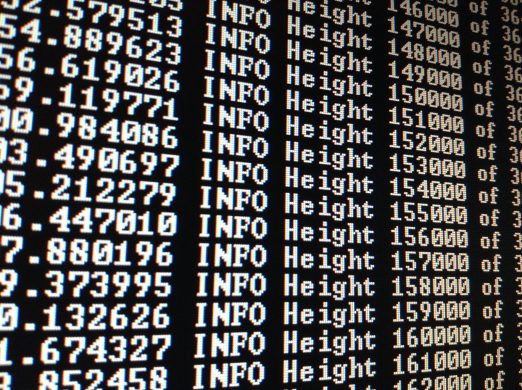During my time working in Afghanistan, there was a hospital in Kabul that was so desperate for a single generator that it applied to multiple UN agencies for help. They received five.
Although the hospital’s needs were met, the duplication simply resulted in wasted resources. This is a familiar story — it happens all over development and humanitarian sectors.
Duplication isn’t the only source of wasted resources — many inefficiencies are built into the multiple layers of the international aid funding system.
Starting with taxpayers in contributing countries, aid funds go through many hands, from one institution to another. Each layer adds on additional costs, entails additional reporting requirements and means increased time to deliver results.
Blockchains for development?
The challenge of how to ensure the most aid possible, quickly reaches those who really need it, isn’t new. But one answer is. We could use the underlying technology behind bitcoins: Blockchain — or decentralized ledger technology.
The unchangeable nature of blockchains makes it practically impossible to alter records.
Blockchain is a decentralized peer-to-peer mechanism that is programmed to securely record almost anything of value with no intermediaries. Once information is entered, it can’t be changed by any single party.
Improving collaboration, increasing transparency
In itself, the fact that all transactions in blockchains are recorded means this technology could increase transparency by its very nature. For many donor governments this is vital, both to help make the best decisions on how to spend official development assistance funds, and for garnering support for their development work back home.
But crucially, in terms of co-ordinating responses to the world’s challenges, and in the quest to build a more efficient international aid system, the potential is tantalizing.
If different aid organizations have access to a blockchai n ledger, they’ll have a better idea of where aid is going and who is receiving what. Having this information would in turn enable different organizations to collaborate, to avo id both duplicating aid — and wasting time and resources.
Fighting corruption
Of course, it’s not only inefficiency that can lead to wasted resources — sometimes the age-old problem of corruption is to blame. But blockchain offers a possible solution here as well. The unchangeable nature of blockchains makes it practically impossible to alter records.
From skimming money from the top of aid funds, to demanding kickbacks, to re-directing aid funds entirely, the ability of all users of a blockchain to trace any transaction from beginning to end makes many common forms of corruption almost impossible to perpetrate.
Even though it’s in its infant stage, the momentum for blockchain technology in the UN system is growing: the potential benefits far outweigh the risks.
Anonymity can be maintained, which is not new in the sense that much of the currency used today isn’t tied to the name of users. But a difference from more traditional transactions, is that the individual user’s privacy in the blockchain-based approach, can be better protected from a third party’s intervention, be it a centralized authority, a bank, or criminal usage. To adapt to a world driven by blockchain, however, requires law enforcement authorities to establish a new regulatory framework.
Even though it’s in its infant stage, the momentum for blockchain technology in the UN system is growing: the potential benefits far outweigh the risks.
Development and testing of the potential applications has already started. For example, cash-based aid is being sent as cryptocurrency vouchers to 10,000 Syrian refugees so that they can purchase food locally as part of a large-scale World Food Programme pilot. More than 15 other UN agencies are investigating potential blockchain applications.
In short, blockchain could not only make aid distribution more efficient — it could change the way we approach international assistance for the better.
About the author
Yoshiyuki Yamamoto is the Special Advisor for UN Engagement and Blockchain Technology at UNOPS, and the most senior UN official working in this field. He explores the application possibilities of blockchain technology for the United Nations and international aid work. Yoshiyuki is the former Director of UNOPS Peace and Security Centre. He has more than 20 years of experience in the United Nations system, mainly in humanitarian assistance and peacekeeping operations, and has spent 15 years working in various fields in Pakistan, Afghanistan, Jordan and Iraq.














